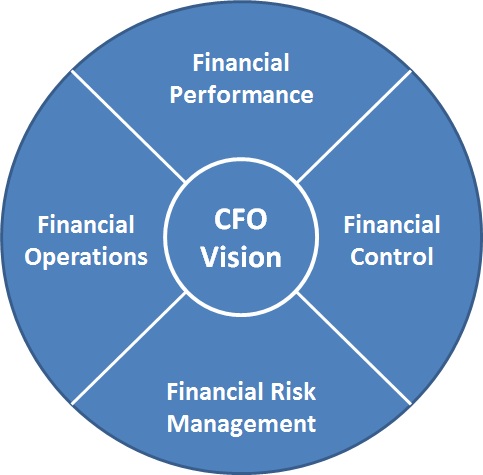Q&A with Ms. Jyoti Khatuka
The global economy is growing increasingly uncertain in its outlook. Fluctuating energy prices, turbulent currencies, commodity price rises, public government deficits, and inflationary pressures are just some macro-economic trends that are having a significant impact on the way businesses operate. Resultantly, business priorities are changing; and organisations are forever on the lookout for long-term strategies that foster sustenance and profitability.
The need for powerful financial leadership has never been felt so strongly before as in the present-day business environment. Today’s business leaders are expected to guide their companies through volatile markets with hitherto unheard-of challenges, with innovation and agility as their torchbearers.
Beyond the core responsibilities of financial reporting, audit and compliance, planning, and treasury, financial leaders are now playing a stronger role in corporate portfolio management and capital allocation. Many others have become their company’s ‘voice’ in investor relations and communications with the Board.
Escorts’ Corporate Communications team spoke to Ms. Jyoti Khatuka, AVP – Head Treasury & Project Finance, on this evolving role of financial leadership, and what it takes to be a successful finance professional today.
The role of Financial Leadership (CFO/Finance Head) has never been more demanding. How does this change create value within an organization?
The financial leadership, or CFO, or whatever you call this role, can now be labelled as a “Business Enabler”. The role has evolved beyond a traditional mandate to provide financial perspectives and analysis. Financial leaders today make greater contribution to organizational strategy, risk management and operational success.
In recent years, compliance and regulatory controls have also become more complicated, leading to CFOs having to take even greater responsibility. Usually, the finance heads are given the responsibility for profitability targets. Irrespective of the health of the company, the topline and bottomline expectations remains constant. The CFO has a clear understanding of the revenues and the costs. With this knowledge, he can partner with the CEO and achieve those targets.
As a business enabler, the CFO today brings value to the organisation by providing insights to:
- Corporate Strategic Planning
- Technology Management, Investment and Implementation
- Corporate Governance and Investor Relations
- Cash & Capital Management, Forecasting & Risk Management
- Tax Planning & Optimization
What are the critical skills that a financial leader must possess in today’s times?
To be successful as a financial leader, one must be a visionary more than anything else. He must be the management’s eye-opener to the economy and policies. To be able to achieve this, the financial leader should be well aware of business fundamentals and should keep an eye on macroeconomic issues. He should be able to anticipate future challenges and come up with the solutions to deal with them.
Above all, he should be an inspiring leader who encourages collaboration by managing people with different roles and responsibilities, and directs them to achieving the organisational vision.
How can finance professionals better equip themselves to deal with these times of transformation?
Any individual in the domain of finance should, more than anything else, be prepared to deal with the ongoing global financial crisis. Strengthen your business fundamentals and keep an eye on global developments. Keenly follow macroeconomic trends and industry best practices. Also, it is important to know that in times of slow growth, management of costs can have a positive impact on the financial health of any company. Hence, they should learn to facilitate operational efficiency and better working capital management.
